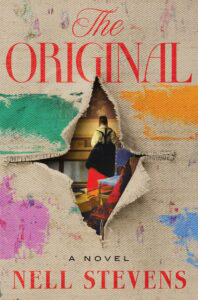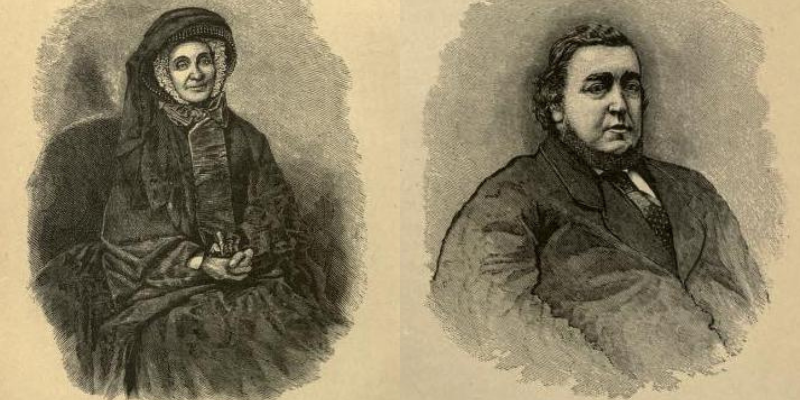In 1865, a British man who was working as a butcher in Wagga Wagga, Australia, contacted a wealthy English family to announce himself as their long-lost heir. Roger Tichborne, an aristocrat, had been presumed drowned after a shipwreck in 1854, though his mother refused to accept his death and spent years searching for him, sending letters to far-flung corners of the world, placing adverts in international papers. The butcher from Australia was not an obvious fit for the missing heir: he was extremely fat when the young Roger had been thin, he spoke no French, though the real Roger had been raised in France, he was unable to tell the difference between Latin and Greek though Roger had been classically educated.
Despite this, and despite most family members’ forceful objections, Roger’s mother, Lady Tichborne embraced him as her son, later supported by Roger’s former colleagues and family servants. The legal battle that followed captivated Victorian Britain. Was the Tichborne Claimant genuine, a bona fide aristocrat returned from afar, or was he an audacious fake?
There is something utopian about the possibilities revealed by the Tichborne case—for social disruption and reinvention.
I first encountered the story of the Tichborne Claimant twelve years ago in an unlikely place: the national archives of the Falkland Islands, which I was visiting as part of a writing fellowship. Among the records, I found an 1860 letter inquiring whether a man, rumored to be living alone on a remote island in the South Atlantic, might be the long-lost heir to a wealthy English family. The family in question were the Tichbornes, at that point still searching for their missing son.
The Tichborne case was a puzzle, raising tantalizing questions about authenticity and deception, about wealth and the ways identity is shaped by money. It’s a provocative story, too, because the truth of the matter, whatever it might be, demands that something bizarre has occurred. Either a mother has been tricked into believing a complete stranger is her son, or a family and legal system has refused to acknowledge that a man is who he says he is. Someone, or everyone, was lying. All possible solutions are implausible.
I held on to the story for years and eventually began to work on a novel inspired by some of the details of the case. I knew there had been other novels written about it, mostly in the twentieth century; I was not under the illusion that I was the only one who knew about the Tichborne Claimant. But still, I felt proprietorial about it, having first come across it in somewhat unusual circumstances. I briefly outlined it, once, to a group of creative writing students and was affronted when one of them said, casually, that she had heard about it on a podcast.
Then I received an ominous message from my agent saying she had been talking to an editor about my Tichborne book and needed to speak. The editor had listened to my agent’s description of my work, she said, and told her it sounded exactly like the new Zadie Smith novel. This is how I came to find out about The Fraud, Smith’s story of a Victorian household captivated by the Tichborne case, which was to publish a few months later. It was a moment of utter deflation. What were the chances that over the many years I had thought about and worked on this story, another novelist had been doing the exact same thing? And not just any other novelist, but Zadie Smith, one of the highest profile writers of our time?
As my project progressed and evolved away from many of the details of the original Tichborne story, and so away from The Fraud, I experienced something of a barrage of Tichborne and Tichborne-adjacent stories. There was the 2022 film by Sébastien Marnier, The Origin of Evil, in which a woman appears at a wealthy family’s home, claiming to be their estranged daughter. That was followed the next year by Emerald Fennell’s Saltburn, the story of a working-class imposter who manipulates and murders his way to ownership of a great house. This spring, BBC radio four broadcast a new adaptation of Josephine Tey’s Brat Farrar, a 1949 crime novel inspired by the Tichborne case.
Each time I came across another iteration of this story, I caught myself returning to the question I’d asked when I first found out about The Fraud: what are the chances?
I came to realize that, in fact, the chances were incredibly high. The story of the Tichborne case, circling questions of inheritance, reinvention, class and identity, is a story becoming increasingly resonant to this moment in the twenty-first century.
The Tichborne case was famous in its day because it revealed uncomfortable truths about Victorian society: the rigid social strata within which everyone lived were revealed to be artificial; it was in fact possible that any ordinary person could claim to be a long-lost aristocrat and might be taken seriously as such—or that an aristocrat might assert his rights to his family estate and find he was indistinguishable from an ordinary person. That there was no objective way to prove the difference was profoundly unsettling.
The baffling thing about the public response to the Tichborne case was its cognitive dissonance: the man claiming to be Roger Tichborne was embraced and supported in his claim by working class people who saw him as one of their own, a working-class hero; and because he was one of their own, they insisted—and believed—that he was the aristocrat he claimed to be.
The reality of the social world we currently inhabit is not, on its surface, one as stratified and rigidly beholden to class as it was two centuries ago in Britain. But we are nonetheless aware of the ways in which our social position holds and controls us, of how a person’s background—their parents’ wealth, their economic and social capital—dictates their experience of life. Both the American dream of social mobility and the British fantasy of a post-class society feel increasingly hollow. Stories of scammers and fakes delight us because they offer a corrective to the failed promise of social mobility. It’s notable that after so many years, The Great Gatsby still has such a hold over us, as does The Talented Mr. Ripley; these are stories where deceit and reinvention offer escape from rigid social hierarchies. There is a kind of catharsis in accounts of people who have permeated the boundaries that hold most of us so firmly in place.
[Fiction] allows us to imagine a different outcome to the Tichborne story and so a different world altogether.
The prizes being fought over in the Tichborne case—the house, the inherited wealth—are the kind that to many are as unreachable now as they were to Arthur Orton in 1865. As the ultra-wealthy hoard more and more assets, leaving everyone else fighting for scraps—a dynamic exacerbated by stagnant wages and an elite class increasingly distant from the lives of ordinary people—the story of the Tichborne Claimant becomes less an eccentric Victorian anecdote and more a sharp political parable about injustice and the allure of rebellion by any means.
Is it any wonder that we are turning again to stories of people tricking, scamming or finagling their way into great houses when the average income-to-house-price ratio has more than doubled in the past fifty years? Novels have always been concerned with structures; the metaphors for writing them are so often architectural: building, constructing, scaffolding, bridging. The story of the Tichborne Claimant is a story both of the great structures of British society, its great houses and great families and even its legal system. But it is also the story of the ways those structures might fall. Who gets to inherit the house, and who gets to burn it down?
It was clear to most, by the end of the Tichborne case, that the claimant was not the real Roger Tichborne and was in fact the working-class butcher he had always appeared to be. Creative work inspired by the case is called upon to make a judgement too, to decide whether or not in the end to portray the claimant as genuine or a fraud. But, as I wrote my novel, The Original, I came to see this as a kind of moral trap, as though there is a reasonable logic to this kind of inheritance that fiction should uphold.
There is something utopian about the possibilities revealed by the Tichborne case—for social disruption and reinvention, even though, in the end, Orton was revealed to be Orton. Fiction itself is utopian, too, a space where the unjust logic of inheritance and privilege can be questioned, rearranged or reversed. It allows us to imagine a different outcome to the Tichborne story and so a different world altogether: one where the keys to great houses might end up in the hands of the people who built them.
__________________________________

The Original by Nell Stevens is available from W.W. Norton & Company.
